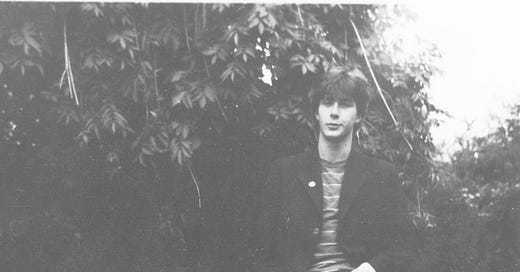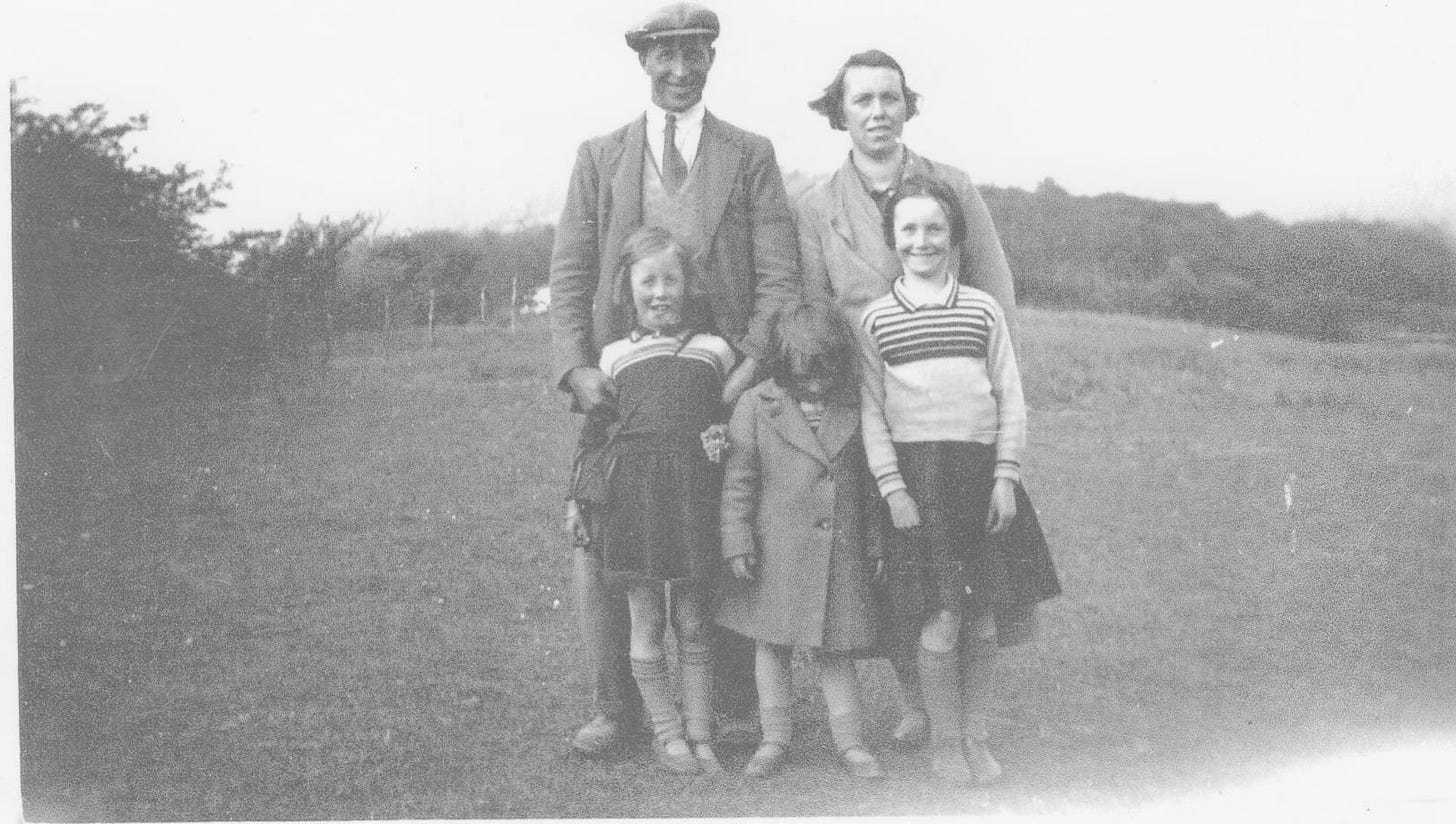LEAVES FROM A NATURE NOTEBOOK: A FRAGMENT OF AUTOBIOGRAPHY
NATURE BOY: SCENES FROM A 1970s HEREFORDSHIRE CHILDHOOD
[JLS, aged 19]
My first memory: I am a toddler, strapped in a Silvercross push chair, the one with the green canopy to keep out the Sixties sun. My parents (I learn later) are on holiday in Venice, and I am in the care of my great aunt and uncle, Kathy and Willi, who farm sheep at Llangennith on the wild Gower.
The pushchair is on the stone flags outside the front door of their Snowcemmed farmhouse. Shadow, Willi’s sheepdog, slinks up to the side of the push chair, levers himself up and peers at me. Before biting me on the face.
I was bitten by more than a dog that afternoon, I was bitten by a bug: I have loved dogs and farming ever since.
I’ll explain. It was, of course, my fault that Shadow bit me; I had provoked him by waving an ice-cream with a 99 chocolate flake in his face. I would have bitten me too.
Shadow was my brother –I did not have a human one, or a sister- and on that summer afternoon in the Sixties I learned to treat him like one: with awe. Modern biologists reveal almost monthly that the ‘species barrier’ between animals and humans is thin; I learned that, Mr Scientist, in my pushchair.
I think it was the same afternoon that I watched Shadow flush out sheep from the hazy ruins of the castle on a single word of command from Willi. I held Willi’s wind-beaten hand; transmitted through it was the Zen contentment of a man in harmony with his dog, his stock, his land. I wanted the same.
My parents’ Venice vacation was one of their periodic attempts to patch up their marriage; it failed, and by the time I was six they had divorced. After the break up I chose to stay with my father and the dog of my own he had given me, Honey, a Golden Retriever, plus her accidental son Rover, a Black Lab. My family consisted of other animals by then; a tortoise, two white geese, the Rhode Island Red chickens I took for walks, and a half share in a grey pony called Owen.
Horses were a big thing in my childhood. At primary school I went 50-50 with Malcolm Thomas on purchasing Horse & Hound each week, though I learned to read very late, and only after an outrageous, and sternly delivered, bribe: ‘You can only have the Thunderbirds EP when you can read’. The next day I could read. Fluently.
My father owned a business supplying the catering for racecourses; hors d’oeuvres and horses, as I came to think of it.
At this time we lived just outside Hereford, the river Wye to the bottom of the long gravelled drive, a farm next door, and stretching away down towards Ross the sort of meadow-and-hill pastoral scenes that English men and women men paint, write poetry, or die in wars for. In some parishes the field pattern was the same as it was in the 13th century, when my mother’s family arrived in Herefordshire.
My childhood Herefordshire was an antique land. In 1969 the Americans flew to the moon. We got mains electricity.
My ‘pets’ consisted of more than those I officially owned. Every apple tree in our orchard was mine, as were the house martins that nested under the eaves, the cabbage white butterflies on the vegetable patch, the bats in the barn, the tree creeper that climbed the pear tree on the front lawn, detective-inspecting every crack in the bark. I was besotted with them all.
There seemed no end to the birds in Herefordshire in the 1970s. My father, who had served in the Fleet Air Arm during WWII, believed in ‘benign neglect’ when it came to the care of his son. Luckily, the parents of my friend Tim, who were the same Second World War vintage, believed in the identical parenting philosophy, so Tim and I spent weekend afternoons wandering the Wye valley with bits of fishing line to catch eels, and outsize Boots 10 x 50 binoculars to spot birds. The latter were entered on the checklist at the back of the RSPB diary that was my staple Christmas present.
At spring ploughing at Field Farm at Hampton Bishop the lapwings were as thick as snow.
What to do about the boy’s schooling? became another argument between my parents. At one stage, their preferred solution was to send me a girls’ boarding school outside London with which my father had some connection. I managed to avoid that fate by being farmed out to relatives, and employees of my father so I could attend day schools in Hereford.
The ‘farming out’ was literal in one sense. When my father’s work took him away to Sandown, Kempton Park, Wincanton and those other racecourses that run through my head like a Creed, I lived with my maternal grandparents for weeks, sometimes months at a time
.[Joe and Margaret Amos: Kathleen Amos, mother of JLS on right, front row]
Joe and Margaret Amos were hop farmers in East Herefordshire. Although the picking of hops had become mechanized, not much else had been touched by modernism down on the farm in Withington. It was good, and I was lucky to have caught a glimpse of really rural England, before the chemicals and the industrialization of agriculture. My grandmother taught me to smell the weather on the wind, my grandfather knew the answer to the question I pestered him with in 1972: ‘What’s the bird in the wheat-field making the funny noise?’ It was a corncrake, and probably the last in the county. Yes, even in Herefordshire the farmland birds were beginning their decline.
So too were the genuine country eccentrics. My grandparents’ neighbour was a bone-thin aristo who would emerge from her lane-side garden to grab me by the arm, and warn ‘Never trust anyone who does not have dog hair on their sofa’.
I was terrified of her, although by 1979, when I was the only punk in the village, she really should have been alarmed by me.
Back then, I thought the lady in the herbaceous border mad. Curiously, the intervening years have proved her largely right. A version of this article appeared in the now defunct Countryman Magazine





